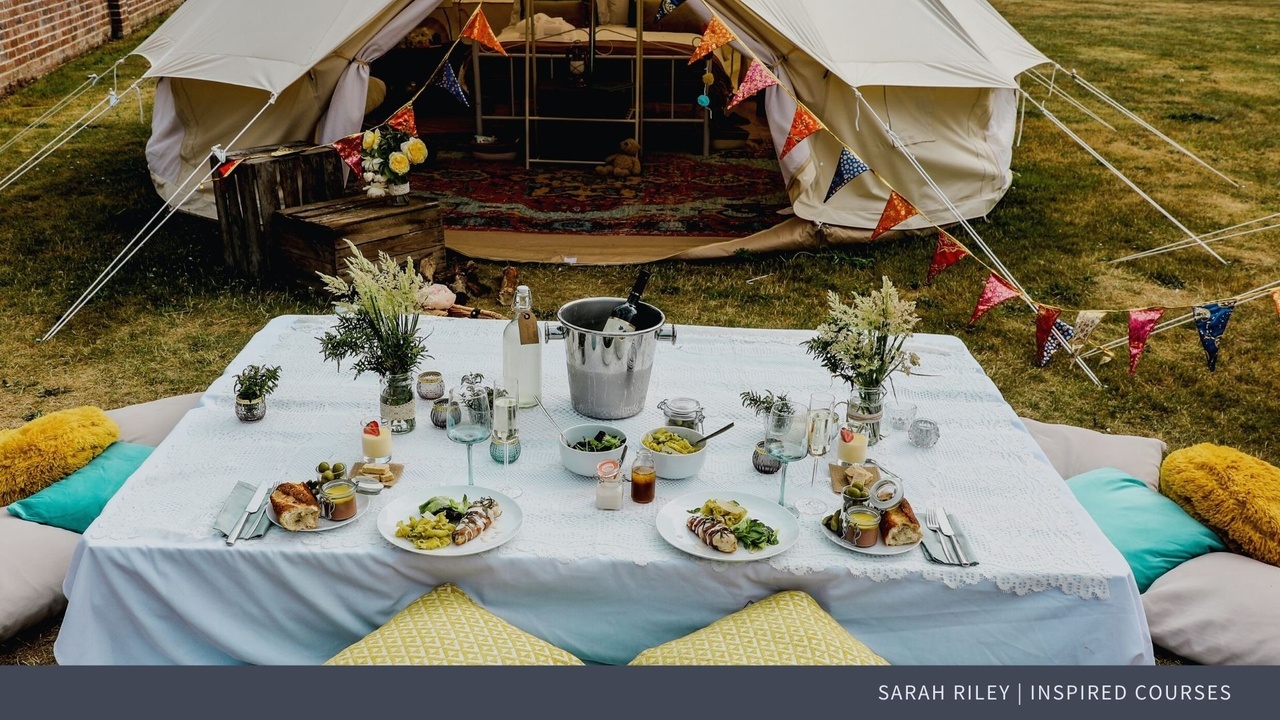OTA Ghosting in the Glamping and Hospitality Industry

In the Start Up And Grow Club, an accelerator program for glamping businesses and unique holiday rental hosts, we have been talking about negative practices being used by OTAs to the detriment of small business owners. One such practice is ‘ghosting’.
This is such an unscrupulous activity it definitely supports the case for generating more direct bookings between the hosts and guests and relying less on OTAs (online travel agents).
Listen to podcast episode #44 on your favourite platform here.
Ghosting is becoming increasingly common within the hospitality industry but it’s likely you haven’t heard of it before as OTAs are doing a great job of covering their tracks with this underhand technique, which they are using to boost their profits.
With many OTAs changing their terms and conditions to allow them to carry this out legally, it is incredibly important that hospitality owners are aware of the negative impact that ghosting can have on their business and, crucially, the action that can be taken against it.
What is Ghosting In Hospitality?
As a small hospitality business owner, you may decide to put your property on an OTA platform and subsequently sign the terms and conditions for doing so. However, at a later date, you might take your property off the platform as you no longer want to list it with that OTA.
End of story...right?
Unfortunately not.
You soon discover that a ‘ghost listing’ of your business still remains on their platform, meaning that if a customer wants to book your property and clicks on the listing, it states that your property is fully booked and the customer will be shown alternative properties available on the platform.
This is ghosting.
Despite choosing to no longer list your property with them, the OTA is still using your business - your images and text - to promote their platform and attract bookings for all of their other properties.
OTAs that use ghosting are, in essence, taking advantage of small business owners by using their content to make money on their own platform.
Although this is not the case for all OTAs (many OTAs within the glamping industry are very supportive of small businesses owners and have a less negative approach), lots of larger OTAs are increasingly doing this.
What Does Ghosting Mean for Small Business Owners?
Ghosting can have an extremely negative impact on small business owners within the hospitality industry.
Firstly, your business does not receive any publicity through your images and text being displayed on the OTA’s platform.
Secondly, customers who know your business and want to make a booking will be incorrectly told that you are fully booked due to a misleading ghost listing on an OTA's platform. Even if they have your direct contact details, this false information might prompt them to look elsewhere and you lose that booking.
This is a real concern for business owners, particularly small business owners working hard to get the bookings needed to make a profit and businesses that have experienced difficulties in recent years due to the COVID-19 pandemic. 
OTA And Glamping Business Terms and Conditions
Earlier this year, I received a notice that Trip Advisor was changing its terms and conditions. However, this was no trivial change - in fact, it was huge.
Their terms and conditions now stated that when a business owner agreed to use their platform, Trip Advisor then had access to all text and images contained on a hospitality business owner’s website, which they could harvest at any time with perpetual, irrevocable, royalty-free, transferable and sub-licensable rights over these images and text.
They were making a grab for content that was made possible by this change in their terms and conditions.
Now, realistically, how many of us go through and fully understand every single thing contained in a contract?
Very few of us.
Even fewer people get a solicitor or lawyer to check out the contract before signing.
When faced with such terms and conditions, many of us feel that we’ve been put in a position whereby we have no choice but to sign - so what’s the point in going through it with a fine-tooth comb?
It’s understandable that people inevitably sign an OTA’s terms and conditions but they are essentially giving away control of their content.
What Action Can Be Taken?
There are several things that a hospitality business owner can do to combat ghosting.
If you are signed up to an OTA’s platform, you can take steps to figure out if you’re being ghosted.
This involves doing a clever image search on Google. Simply type “image search” into Google and you will be taken to the Google image search platform where you can look across the web at how many times your image has been used. You can then start to identify places that you don’t want your images to be used.
However, bear in mind that not all uses of your images are bad.
Although you may discover that your images are being used without your knowledge, in certain circumstances, this can be a positive thing.
Rather than evidence of ghosting, your images could be used on a website or blog, by a guest who has stayed at your property, by a partner you have worked with on PR or a local business supplier that you have collaborated with.
If they are using your images along with a link to your website, this is fantastic for your SEO and getting your website higher up in search engines. If there is no link to your website, simply contact them and ask for this link to be included in order for them to continue using your images.
You need to assess whether the use of your images is positive or negative by asking yourself - are you benefiting from it in any way?
If you discover that your images are being linked to an OTA platform that you no longer use and you want them to remove your details, the first thing you should do is check the contract you signed.
If your contract has wording around the right to use your images and text perpetually, exclusively, and irrevocably then you will need to take a slightly different approach when asking them to remove your details as this gives them a legal basis for doing so.
When using ghosting practices, OTA’s are using your brand to benefit themselves and as a business owner, you want to try and keep control of this. One of the best ways to do this is actually through your unique brand.
You can ensure that your logo and business name is trademarked (this is fairly simple and low-cost) and then put a light watermark of your logo and business name in your images. Therefore, if an OTA starts using your images, you can inform them in writing that this is trademark infringement as you did not give them your permission to do so and give them a reasonable deadline for removing your images.
In the UK, there are other things that we can look at in the fight against ghosting, including Trading Standards and the Advertising Standards Authority.
The Consumer Protection from Unfair Trading Regulations (2008) can also be helpful. They give you certain powers when approaching big, corporate businesses that are using their size and strength to overcome small business owners.
A precedent has been set within the structure of these regulations that says after a specified period of time, it is not reasonable to use another businesses’ images or text for the benefit of a business that does not own them.
Prevention Is Better Than Cure
If you do decide to use an OTA’s platform, the best way to avoid falling foul of ghosting is to do your homework and read through the terms and conditions extremely carefully before signing. It’s important that you trust the OTA and have in writing exactly what to expect when signing up to guarantee that you’re protected.
For many hospitality business owners, the practice of ghosting puts them off working with OTAs and results in them working harder to attract more direct bookings.
The methods for achieving this are outlined within Sarah Riley's Marketing Masterclass and other lessons tailored for glamping businesses and unique holiday rental owners.
Speaking directly with customers allows for greater control with over-bookings and occupancy while also maintaining the strength of communication between the host and guests. This strong connection is usually shielded by OTAs who don’t want business owners to speak directly with guests as this ruins their entire business model and damages their income potential.
If you would like the additional support that comes from meeting regularly with a group of like-minded small and medium business owners working towards the same goal, click here to learn more.
Learn more about The Start Up And Grow Club
Listen to all previous episodes of the podcast here


